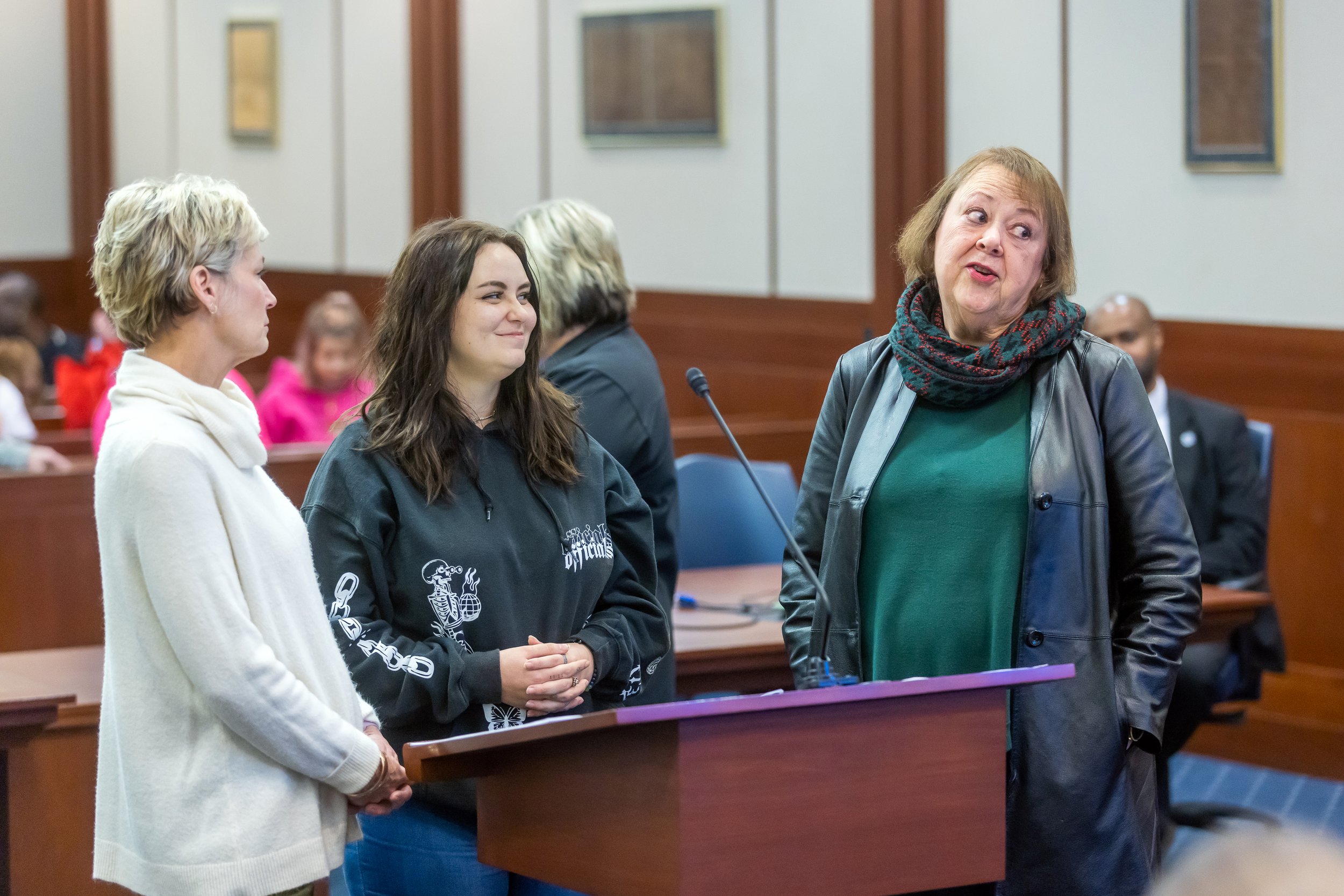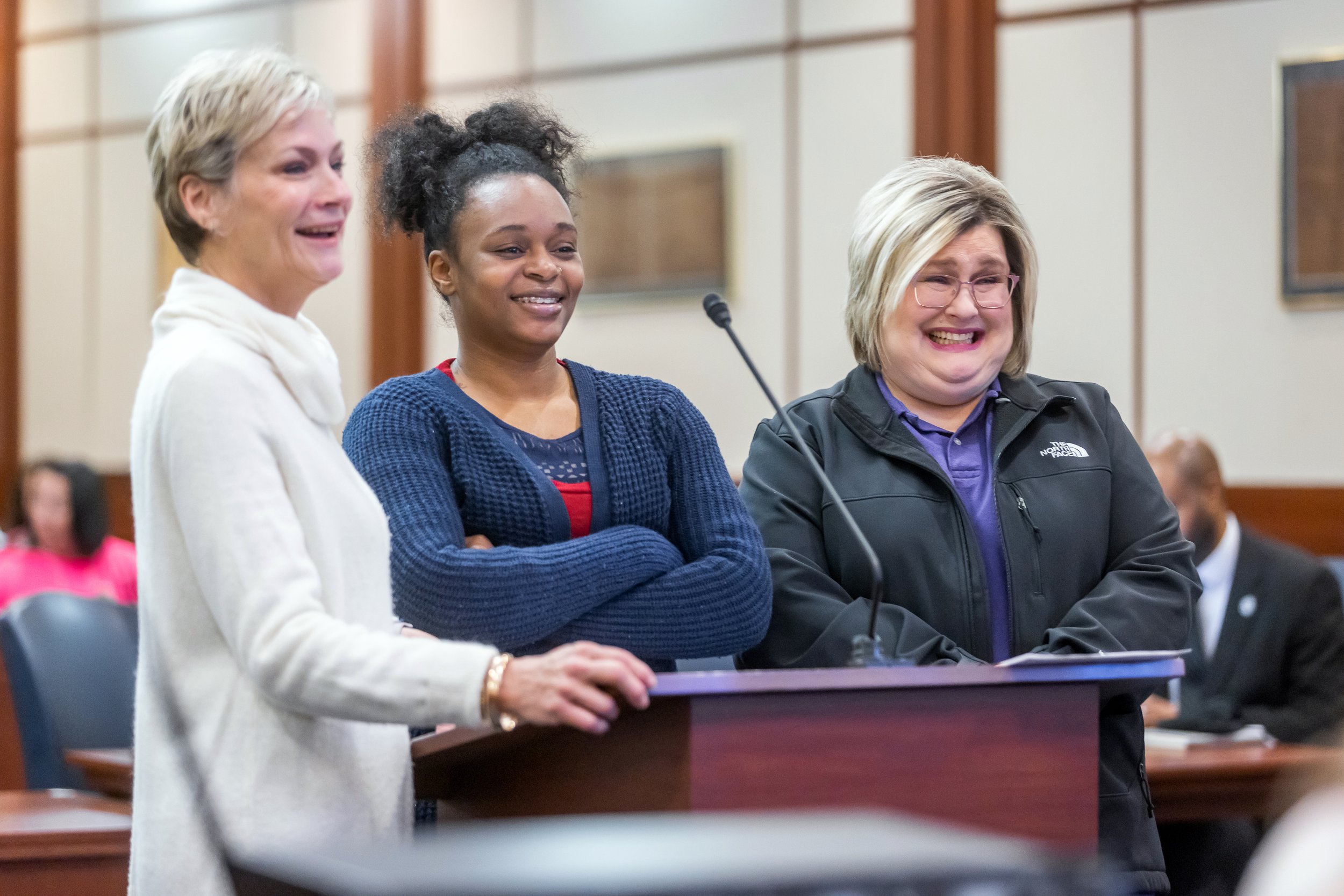

















A Way Out
A story about recovery, transformation, and a second chance from program graduates.
Program Stats:
Assessed: 332
Admitted: 260
Graduated: 89
Re-offenses: 8
*As of march 2025
The David O’Quin Pre-Trial Diversion & Recovery Program began as a pilot reform effort inside the jail. The goal of this program is to provide safer, more effective alternatives to incarceration. The Baton Rouge Area Foundation (BRAF) applied for and received a $50,000 grant from the John D. and Catherine T. MacArthur Foundation and, because of the program’s success, is now fully funded by the City-Parish.
Program staff work in conjunction with key criminal justice stakeholders which include the District Attorney, City Prosecutor, Public Defender, Sheriff’s Office, 19th Judicial District Court, and Baton Rouge City Court and several Community-Based Service providers. The program, staffed by a licensed clinical social worker (LCSW) and resource coordinator (case manager), seeks to identify non-violent offenders inside the jail who are unable to bond out and who have an identifiable mental health or substance abuse challenge. Once identified, potential program participants are assessed by the LCSW to determine suitability for the program, including willingness to engage in treatment and family support structures.
After approval from the DA, Public Defender, and assigned judge (usually Judge Johnson from the 19th JDC), participants are released from jail to begin a six to nine-month treatment plan that generally includes a 28-day inpatient substance abuse program followed by several months at a halfway house, during which they are drug tested regularly. Participants with mental health needs are also required to attend psychiatric appointments. All participants are required to engage in job training, educational programs, or other programs intended to help ensure they may successfully live and work independently upon completion of the program. Participants are monitored regularly by the program’s resource coordinator and must appear before the assigned judge for regularly scheduled status hearings. If a participant absconds or does not comply with treatment plan requirements, a warrant is immediately issued for his or her arrest. Upon arrest, program partners discuss each client on a case-by-case basis to determine whether to approve re-admittance into the program. Participants who successfully complete the required treatment plan graduate from the program and have their charges dropped by the District Attorney or City Prosecutor.

